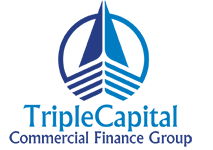What to Know About A Commercial Mortgage
As businesses grow, it often becomes feasible and logical to own the property in which they do business. Perhaps office space is available or warehouse space is needed. In either case, a monthly payment may represent a decrease in overhead when compared to a lease payment. Meanwhile, building the company assets can be a very good strategy for increasing the value and worth of the company, especially when the company’s success seems promising. When business owners are in the market to purchase property to house company work, a commercial mortgage will help to secure the funds succinctly and efficiently.
As with home mortgages, commercial mortgages are normally held by banks and require an excellent credit rating. A superior business credit rating arises from the timely payment of bills and satisfaction of debts according to contract/agreement. Any late payments or past due accounts are likely to be reported to credit agencies, and such delinquency can be quickly and seriously detrimental to the credit rating business owners so desperately need to protect.
Some loans will not require a personal guarantee, but that is not the norm. Whether or not a personal guarantee is necessary, lenders need assurance that the business owner is not only in the clear financially, but that he or she also has a history of dealing with the business’s financial situation effectively and concisely. Providing financial statements, resumes, bios, and other insights into your professional experience and business dealings will help lenders to become more confident. If there are hard financial issues looming in your past, dealing with those up front by describing their nature and your strategy for clearing them will help to establish your personal integrity and resourcefulness. Whatever the situation may be, your credit score will be crucial. If that score falls below 680, you would do well to work to improve it before approaching lenders for a commercial mortgage.
In most cases, personal guarantees are necessary to secure these loans. When the business is a sole proprietorship, the personal assets of the signer are very likely to become attached should the business fail or the mortgage fall into arrears. In the case of partners sharing the business, the personal assets of everyone involved are likely to be in danger. For this reason, it is important that all parties understand both what they stand to gain and what they stand to lose when entering into a commercial mortgage agreement.

